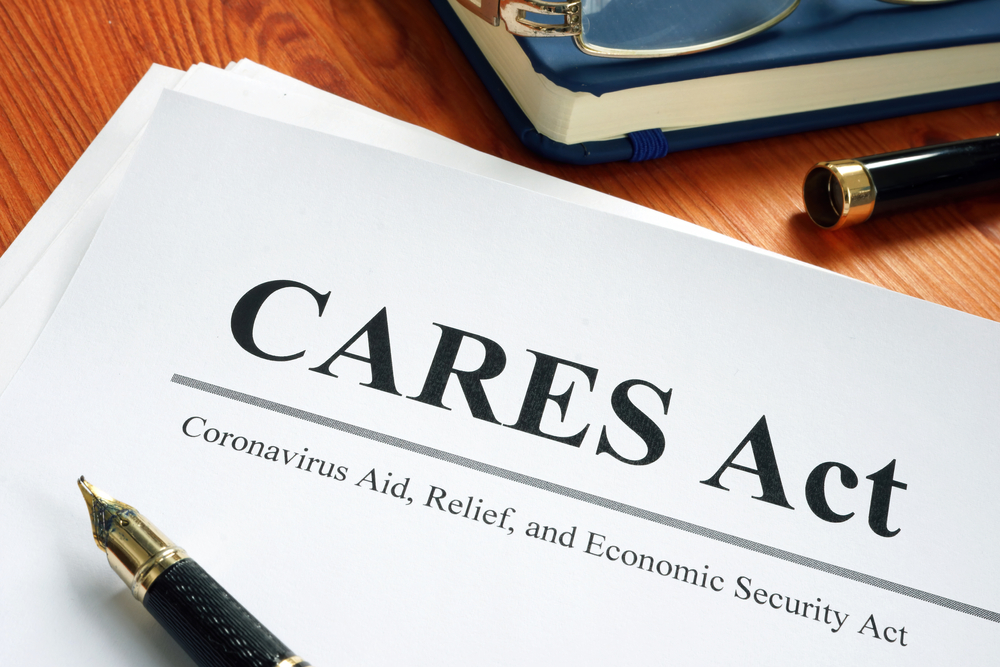
While your 2019 tax filing may not be changed by the CARES Act—though that depends on if certain circumstances apply—your 2020 tax filing can be significantly impacted. From changes in charitable giving to new tax breaks for struggling small businesses due to coronavirus impact, your local Cedar City tax firm is here to help you navigate these difficult new tax circumstances.
Expanded Above-The-Line Charitable Giving
When you take the standard deduction on your taxes, there is no option to claim your charitable contributions, as that is only allowed with itemized taxes. However, due to changes with the CARES Act, you can now claim a new charitable giving.
Called an above-the-line deduction, if you choose the standard deduction, you can still claim up to $300 of charitable donation. This donation needs to be in cash to qualify.
Change To 2020 AGI Limit On Deductions
For business owners who are filing taxes for 2019 and 2020, there has been an adjustment to business interest deductions. Specifically, the limit on the adjusted taxable income has been raised from 30% up to 50%.
This change does not include partnerships, and will only apply for 2019 and 2020. There are other stipulations you should review with our experienced accountant to ensure you qualify to claim the extra deduction.
Business Owners Can Carryback Net Operating Losses
With the CARES Act, business owners can now utilize their net operating losses that were created in the tax year 2018, 2019, and 2020. They can utilize their net operating losses by carrying them back by for five years.
By allowing these net operating losses to be carried back, business owners can receive a tax refund if they had taxable income during that five-year range. Our accountant can help with the adjustment of these previous tax years to ensure your net operating losses are carried back correctly.
Federal Student Loan Forbearance May Change Deduction
Currently, federal student loan payments are in forbearance, and there is a zero-interest rate on loans until after September 30, 2020. This forbearance and 0% interest only applies to Direct Loans, FFEL Program Loans, Federal Perkins Loans, HEAL Loans, but only if they are federally provided loans. Student loans through private lenders and those that have been consolidated will not be in forbearance automatically.
With these loans in forbearance and not gathering interest, the amount that you can deduct from your taxes may change. Also, you may want to take advantage of the ability to pay down your student loans while they are tax-free.
Paycheck Protection Program May Have Unexpected Tax Consequences
Many small—and large—businesses are used to deducting common business expenses like payroll, utilities, rent, and mortgage payments. However, if your company has received a Paycheck Protection Program loan that is eventually forgiven, these common deductions are not available to you.
This loss of a common business deduction can be tough to deal with as a small business owner, so any consideration of applying for a PPP loan should be carefully reviewed with our accountant.
Access Retirement Plan Funds
As many individuals and families have been hard-hit by COVID-19, the CARES Act has allowed eligible taxpayers to make withdrawals from their qualifying retirement plans, up to $100,000. This essentially interest-free loan to yourself will not be counted as income as long as you repay it to your retirement plan within three years after your withdrawal.
Also, if you already have loans pulled from your retirement plans, up to $100,000 of those loans can be deferred.
Consult With AA Tax And Accounting Services On Your Taxes
As you can see, there are many changes that have been wrapped up in the passing of the CARES Act, not all of which we have covered in this post.
Should you need personalized tax advice and assistance when it comes to navigating your tax circumstance, you can always contact us to start working with our experienced tax accountant.





